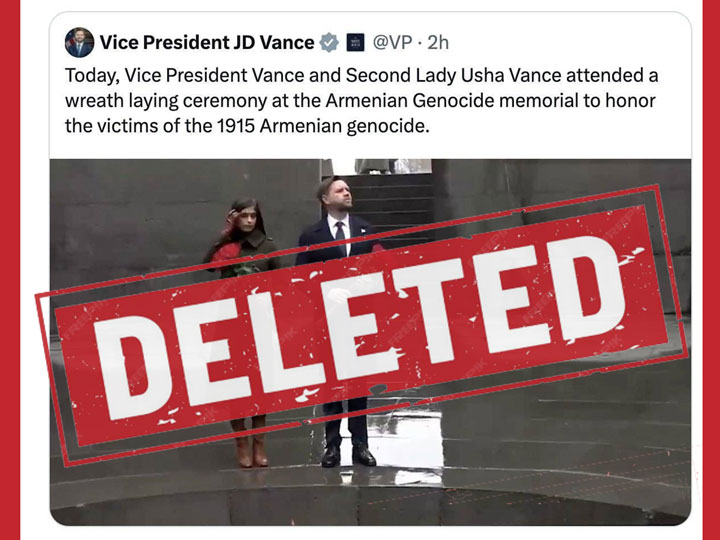Ankara tries to influence on U.S. through Jews
Ankara tries to influence on U.S. through Jews
/PanARMENIAN.Net/ “We will do our best stop the Armenian Genocide bill,” said Tom Lantos, the most powerful person of the Jewish lobby in the U.S. and the chairman of the congressional foreign relations committee after the U.S. visit of Gül and Büyükanit. As reported by Sabah newspaper, Lantos sent a message through the Prime Minister of Israel Olmert.
The Turkish authorities were lobbying in the U.S. against the passage of the bill and trying to convince the chairman of the congressional foreign relations committee Tom Lantos who has a power in the Congress as he survived the Jewish massacre in the 2nd World War.
Ankara tries to influence on U.S. through Jews
/PanARMENIAN.Net/ “We will do our best stop the Armenian Genocide bill,” said Tom Lantos, the most powerful person of the Jewish lobby in the U.S. and the chairman of the congressional foreign relations committee after the U.S. visit of Gül and Büyükanit. As reported by Sabah newspaper, Lantos sent a message through the Prime Minister of Israel Olmert.
The Turkish authorities were lobbying in the U.S. against the passage of the bill and trying to convince the chairman of the congressional foreign relations committee Tom Lantos who has a power in the Congress as he survived the Jewish massacre in the 2nd World War.










Comment